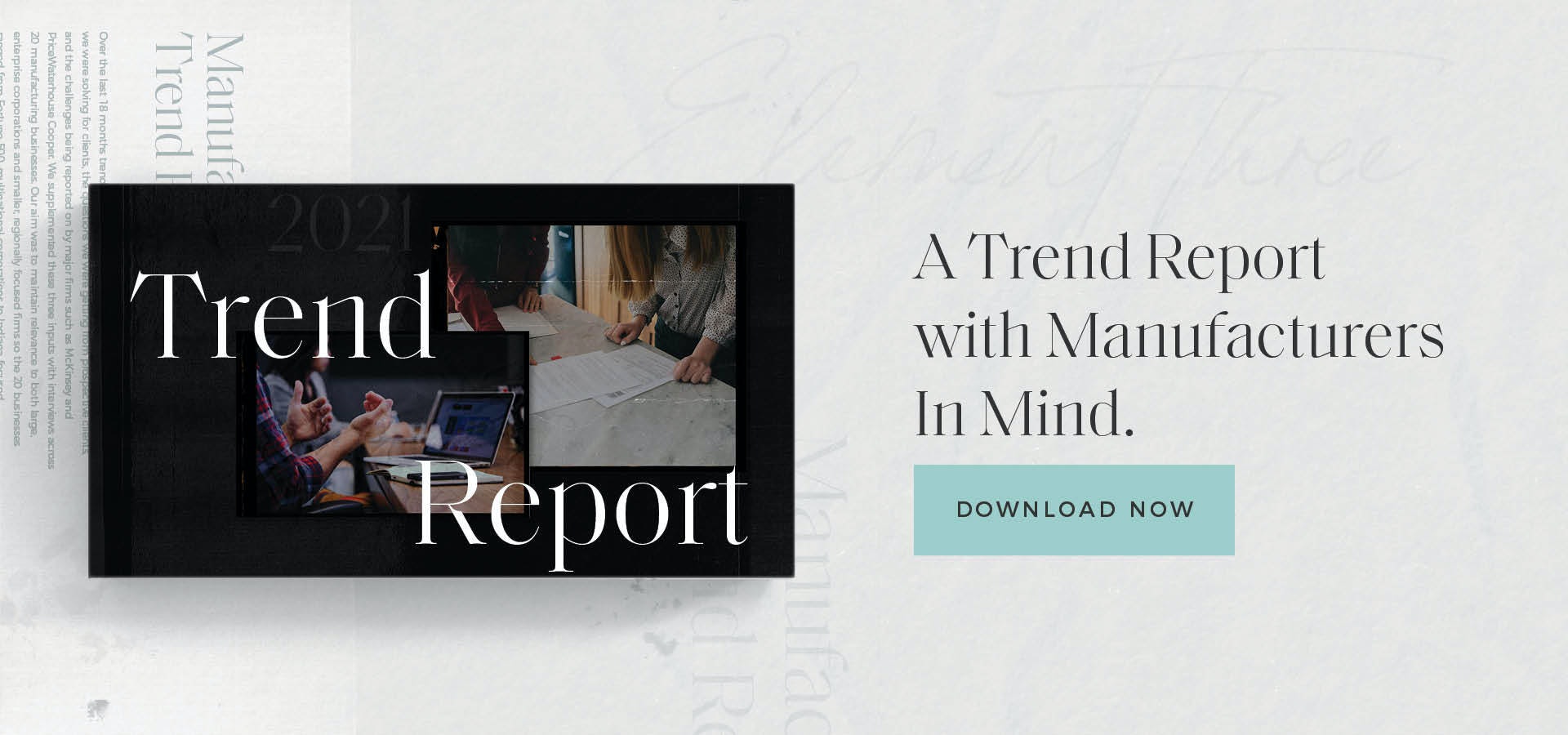Just saying the phrase “marketing agency” can dredge up a lot of old emotions for business leaders. There is such a vast spectrum of opinions on marketing partners. Some people have been burned by bad experiences. They hired an agency to build a website, and it ended up $10,000 over budget and three months late. Others have had wonderful past experiences that led to business growth and increased sophistication of their go-to-market strategy.
And both of those experiences might have even involved the same agency. Honestly, if you interviewed every single client Element Three has ever worked with, I’m certain there will be examples on both ends of the spectrum. We aren’t perfect; no one is. So then, what separates the good from the bad and how can you be sure you’re picking the right partner for you when you’re searching for marketing support?
The biggest name isn’t always the best fit.
If you’ve ever had the opportunity to have your clothes tailored by a professional, you know that the fit of your outfit matters more than just about any other aspect. You can buy a gorgeous $5,000 custom suit but if the pants are too long and the jacket is baggy, you’ll look like you spent $50.
Business relationships are the same way.
The first step to building a great professional relationship is to ensure that the marketing firm you’re talking with fits the goals you have as a business. A creative advertising agency used to managing large media budgets and coming up with campaigns to get consumers’ attention will show up differently than a company whose background is specifically focused on SEO and content strategy. Additionally, consider whether you are looking for a partner or a vendor relationship. This is among the most cliche of topics in the professional services world, but here’s an easy way to differentiate: vendors fulfill your strategy, partners define your strategy and fulfill when appropriate.
It’s easy to say you want a partner, and easy for an agency to claim that they work as a partner. But sometimes that’s just because “partner” sounds good. Sometimes you don’t actually need a partner. You have a plan, you just need a vendor to bring your projects to life, and that’s completely okay! Neither party should feel any sense of shame in that.
Imagine if you were making a home renovation, and you had already designed your entire kitchen. You know exactly what you wanted it to look like and are imagining all the memories you’re going to make with your friends and family in that room. Then the contractor you hired to execute that vision starts coming to you with new interior designs. Frustrating, right? Just do the work! Vendor relationships can make sense, so don’t just throw around the “P” word without thinking it through. Find the right fit, not the marketers who use the fanciest words.
What is your business model and reach?
Another important consideration when hiring a marketing partner is your business’s scope of work. Are you a local business with a focus on the city you physically serve, or are you a national or international company needing to reach a much broader geographical audience? Each has very different needs, and may require different expertise.
For the local-focused business, you almost certainly don’t need to pay the rates associated with a nationally focused marketing consultancy. While a fancy large consultancy may provide more perspectives, they also could be farther away from your target consumer, or they might simply be a sledgehammer when a scalpel will do.
Now, as soon as you get into the game of e-commerce or dealership management, you’ll want to consider that national partner—they’re better equipped to handle a wide range of more sophisticated needs—but when you’re only serving a twenty-mile radius, starting with a local-focused firm can be a great choice.
Where in your growth stage are you?
All companies should care about differentiating themselves with their messaging. They should care equally about being extremely clear about who they do their best work with. Let’s take Element Three as an example. Our team is built primarily to work with two business groups: growth-stage businesses (out of startup mode, but not at an enterprise capacity yet) and small-enterprise businesses (not Apple and Google size, full enterprise). We’ve done a good amount of work over the past several years to build out those buyer personas, talk to our customers about what we do well and what they value, and understand what challenges we are actually solving for them.
For this reason, I regularly tell startup businesses that it’s likely Element Three won’t be the right fit for them quite yet. One of our key value adds is uncovering truths about their business they don’t know—from customers, sales professionals, and leaders throughout the organization who often don’t have a loud enough voice to be heard. If you’re a startup, the founder still knows those truths. More often than not, they need more of a vendor environment than a partner one. Does this mean we miss out on some extremely unique opportunities with exciting companies? Sure. It is also the best answer both for their long-term success and our ability to execute work we are proud to see in real life.
On the flip side, enterprise businesses aren’t often a great fit due to the simple fact that they are most often looking for a vendor. When was the last time you talked to an enterprise business and they were looking for true strategic help? It’s fairly rare—and when they do, they think consulting like McKinsey and the big four, not marketing partners. Does this mean we sometimes pass up on big money opportunities? Yes, it does. It also means we continue to do the work that keeps our team inspired and motivated, and we don’t get out over our skis on what we are built to handle.
This may seem a little bit blunt, but if the marketing agency you’re talking with cannot articulate who they serve and the problems they solve for their clients, you may be in the wrong spot.
Industry and work samples don’t tell you as much as you think.
We could argue until the cows come home about the importance of industry experience and showcasing the work you’ve done. However, when you hire outside of your four walls, you’re not looking for some hidden secret your industry isn’t telling you. You’re looking for new perspectives, and you’re not going to get that by talking to people who have done the exact same thing you have, just with more success.
Similarly, work samples are snapshots of a much larger relationship, and typically cover up the most important parts of getting the work done, which is how you manage the relationship when you hit your first major obstacle or that key presentation falls flat. Without context and story, work examples show you nothing. So move beyond them and industry experience when you’re choosing your next agency.
Instead, focus on fit; their ability to reach your customers, whether those are internal, external, or both; and the agency’s understanding of who they serve best. If you don’t find alignment in those areas, chances are the work is going to be mediocre at the end of the day and both you and your agency are going to feel terrible about it.






